6 Best Christmas Markets in Germany: Cologne, Frankfurt, and Beyond
Germany is where the Christmas market tradition began, and it still sets the standard. But where are the best Christmas markets in Germany? Wooden stalls, brass music, mulled wine, and hand-carved ornaments — everything feels both familiar and deeply rooted.
If you read our Regional Guide to the Best Christmas Markets in Europe, you already know Germany anchors Central Europe’s festive season. But each German city has its own take, shaped by local history, architecture, and crowd size. Here’s how to choose where to go this winter.
For those who are seeking the best Christmas markets in Germany, understanding the unique characteristics of each market can heighten your experience.
Watch more on YouTube.
Cologne: Markets with a Cathedral View
When it comes to the best Christmas markets in Germany, Cologne stands out with its beautiful atmosphere and festive offerings.
Cologne’s main market, one of the best Christmas markets in Germany, sits in the shadow of its Gothic cathedral, one of the most photographed Christmas backdrops in Europe.
Across the city, six other markets create different moods:
- Old Market (Alter Markt): Traditional wooden huts and skating rink.
- Harbour Christmas: Nautical-themed, set along the Rhine.
- Stadtgarten Market: Quieter, surrounded by trees and indie vendors.
Tip: Buy a reusable mug at your first stop — each market has its own design, and you’ll save the deposit as a souvenir.
Frankfurt: History and Heart of the Tradition
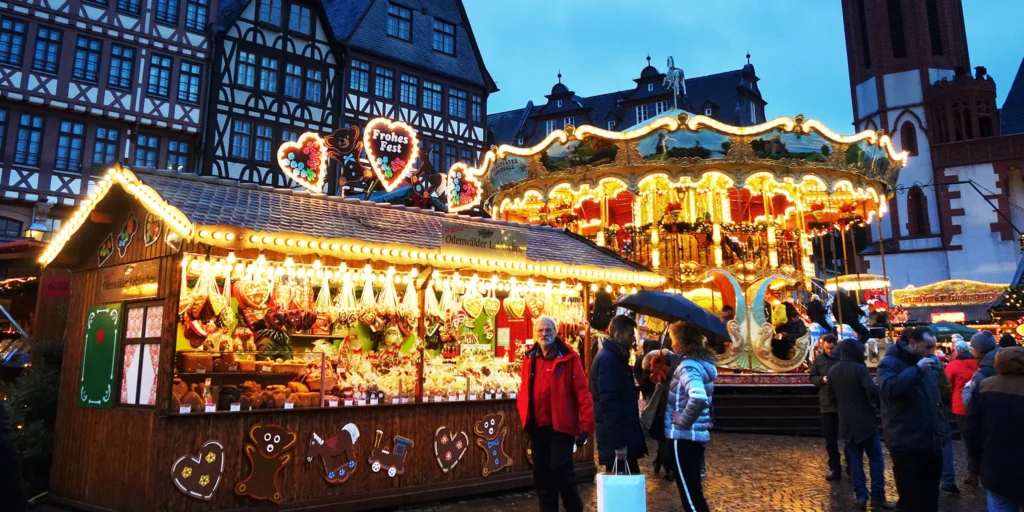
Frankfurt is home to one of the best Christmas markets in Germany, filling Römerberg square with timbered houses, twinkling lights, and carousels.
Local specialties include Bethmännchen (almond marzipan cookies) and apple wine. Visitors often base themselves here for easy train access to Mainz and Wiesbaden, both of which host smaller but equally charming markets.
Best for: Travelers who want a classic market experience without hopping between cities.
Nuremberg: The Oldest and Most Famous
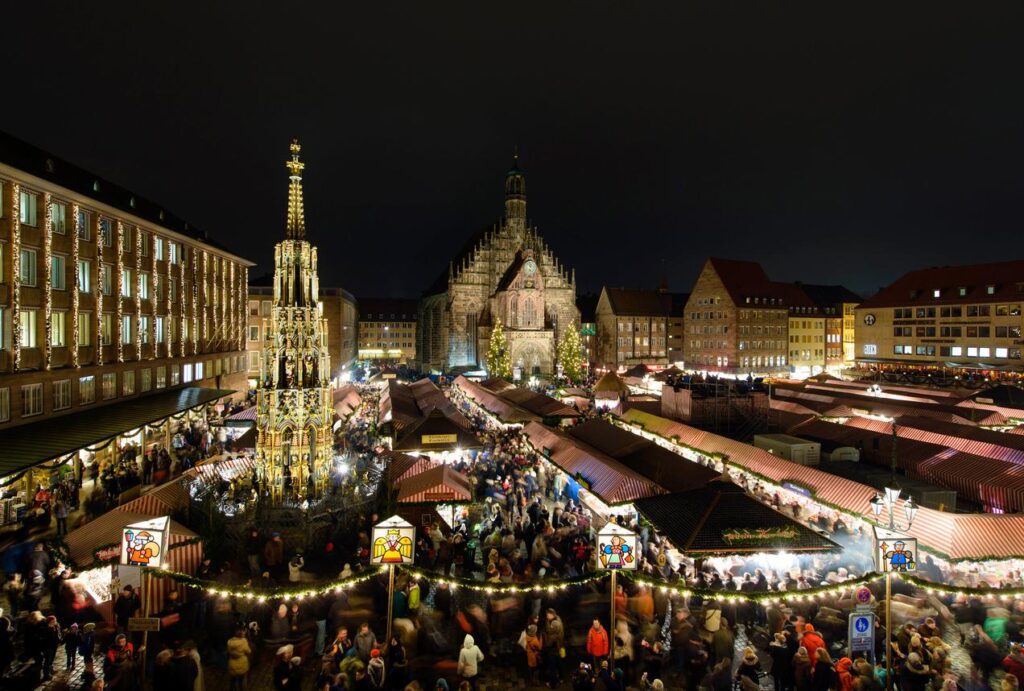
Nuremberg is famous for hosting one of the best Christmas markets in Germany, attracting visitors from all over.
The Nuremberg Christkindlesmarkt is practically an institution. It begins with the “Christkind” — a local girl dressed as an angel — declaring the market open from the balcony of the Church of Our Lady.
The atmosphere here truly embodies the essence of the best Christmas markets in Germany.
The market stretches through the old town, known for Lebkuchen (gingerbread) and handmade wooden toys. The nearby Kinderweihnacht (Children’s Market) makes it especially family-friendly.
Best for: Tradition seekers and first-time visitors.
Dresden: Baroque Beauty and Giant Stollen
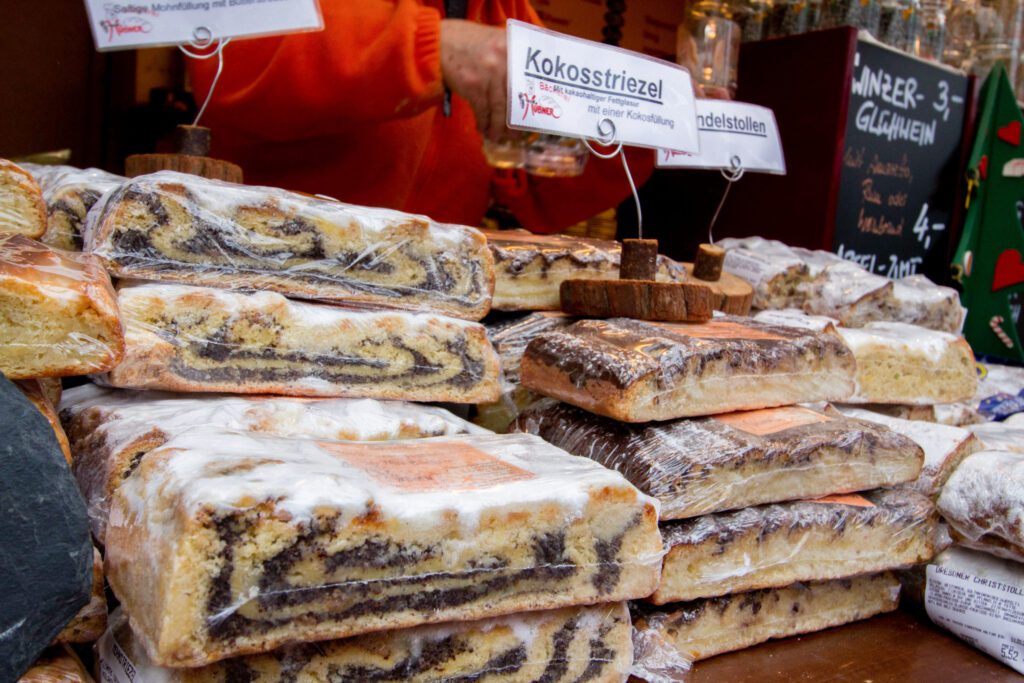
Dresden’s Striezelmarkt is another contender for the title of best Christmas markets in Germany, dating back to 1434.
You’ll find smaller satellite markets around the city, including the Medieval Market in the Stallhof Courtyard, which skips electric lights entirely for candle glow and period costumes.
Best for: History lovers and photographers chasing authentic atmosphere.
Munich: Markets on Every Corner
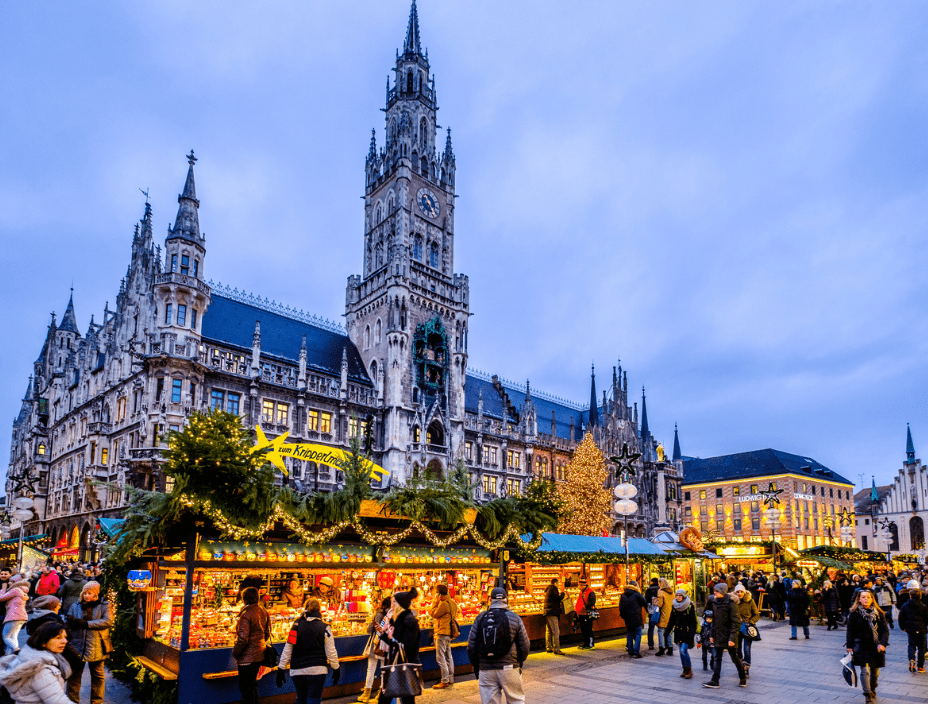
Munich’s main market in Marienplatz is impressive, but the city’s smaller ones might win you over. The Mittelaltermarkt near Odeonsplatz recreates a medieval market with costumed vendors and open-fire cooking. Meanwhile, the Tollwood Winter Festival at Theresienwiese (Oktoberfest grounds) mixes organic food stalls and art installations.
Don’t miss the Kripperlmarkt, devoted entirely to nativity scenes.
Best for: Travelers wanting variety within one city.
Lübeck: Christmas by the Baltic
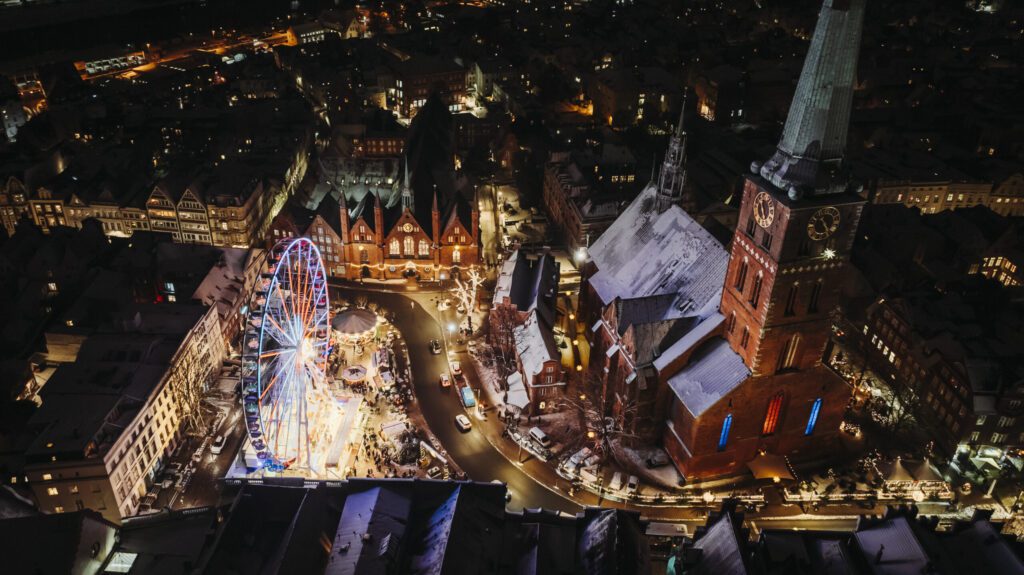
Lübeck is also among the best Christmas markets in Germany, offering a unique coastal charm.
A smaller but picturesque option, Lübeck turns its UNESCO-listed Old Town into a glowing maze of lights. The scent of marzipan fills the air — it was invented here — and the maritime influence gives it a different rhythm from southern markets.
Best for: Slower pace, fewer crowds, and a coastal twist.
Planning Your German Christmas Market Trip
- Timing: Most open in late November and close by December 23 or 24.
- Weather: Expect temperatures between 0–5°C, with snow in Bavaria and Saxony more likely.
- Transport: Deutsche Bahn makes it easy to hop between major cities. If you’re not renting a car (and you really don’t need to), be sure to book your train tickets on RailEurope.
- Stay: Book hotels early — especially weekends in December — or look for midweek stays for better rates.
If you’re planning a multi-country route, read the main Best Christmas Markets in Europe guide for how Germany fits into a broader festive itinerary.
